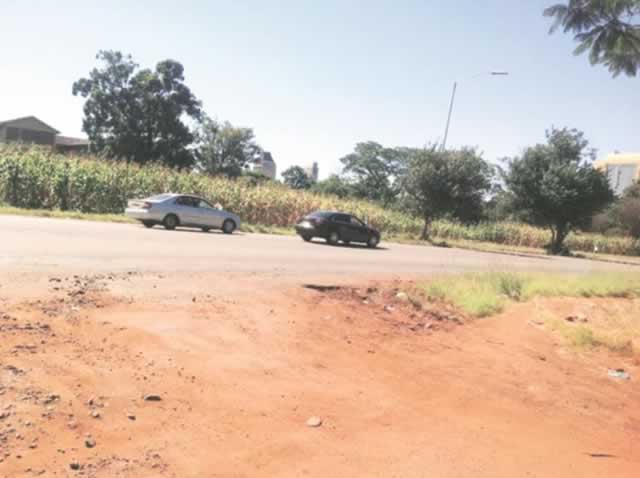Bring back the Shine to our City

When urban agriculture was given the green light, it was after years of running battles between council and residents who felt that they could cultivate on idle council land in order to supplement their family incomes.
CHARLES Mungoshi, one of Zimbabwe’s celebrated authors of the 20th Century, wrote a Shona novel, “Kunyarara Hakusi Kutaura”, which ranks among his best publications.
Loosely translated, “Kunyarara hakusi kutaura” means silence is golden, or one speaks volumes by not talking.
Using the art form of interior monologue, Mungoshi tackles human conflict with dexterity.
However, this is not an analysis of “Kunyarara Hakusi Kutaura”, but an affirmation that many have often times held their peace or silence in the face of conflict, when in fact that silence means a lot.
However, the state of the nation’s capital Harare, once proudly known as the Sunshine City, is a good example where we can no longer afford to keep our silence.
If we were to be asked to point out that which has gone wrong with Harare, we would have a laundry list of things that have gone awry, things that need urgent fixing.
Sadly, some people will rush to point fingers at the state of the economy, politics and/or malpractices such as a corruption. It is never their fault, but that of the Harare City Council and/or Government.
If we apportion blame, who then is to blame? Don’t we realise that we are in this together, and that acknowledging responsibility is the first step towards fixing the problem?

Food security or urban decay? Scenes like these are replicated throughout Harare’s high-density suburbs
We are all responsible for the state in which Harare is: Government, Town House, companies and other organisations, households and individuals, included. All of us!
Since this writer is a major stakeholder in church activities, I will draw the first examples from the church. It is one of the fastest growing institutions in the country. However, most church organisations use rented facilities and/or conduct their services in open spaces.
Move around most of the places where these church services are conducted and you will see uncut grass and litter all over.
How many slashers, church youths and Saturdays does it take to make the place of worship clean and welcoming?
The state of the economy is also being used as an excuse to act willy-nilly, and break the law.
When urban agriculture was given the green light, it was after years of running battles between council and residents who felt that they could cultivate on idle council land in order to supplement their family incomes.
Council gave residents permission to cultivate, but this was done against a set of rules and regulations.
Despite that, the state of urban agriculture continues to give the city a very ugly and unwelcoming picture.
As the available pieces of agricultural land are being turned into residential areas, the result is that most open spaces are now being illegally cultivated.
People cultivate in wetlands, along roadsides and close to railway lines. While questions linger on whether Harare is being turned into a huge maize farm – which is contrary to its quest to return to its former glory of the Sunshine City – you also ask what the city will look like after the harvesting period is over. Who will follow up on the farmers when they fail to clear the pieces of land they cultivated?
Food security is critical, but so too are the laws of the land. Although this writer has taken a number of pictures on illegal cultivation, it was the maize crop cultivated around the Harare Polytechnic – along Rekayi Tangwena Street and Samora Machel Avenue – that triggered this piece. What has happened to us, when what was unthinkable yesterday is now the norm?
This maize crop has eclipsed the institute of higher learning. There are also a number of landmark institutions close to the Harare Polytechnic: Harare International Conference Centre, Rainbow Towers Hotel, Zanu-PF Headquarters and the Harare Showgrounds. It’s a Catch-22 scenario.
Any wonder why silence is golden! Apart from breaking the city by-laws, it is apparent that these people who cultivate their maize crop so close to the road do not care about road users’ safety and security.
This writer, like others, has waited long enough to see Harare transformed into a global city, and thus recommend that Government identifies some of these urban farmers and allocate them land, for it is clear that they want land. It is also evident that some of them can be good farmers if they get land.
During the centenary celebrations of Kutama Mission last weekend, President Mugabe told guests that he was not happy with A2 farmers, who were using the farms as status symbols, and said that there should be an audit: “It is turning out now that quite a good many of those who got farms on the A2 system are not running them,” said President Mugabe. “The farms require huge capital and good management, they don’t have it, but they are a status symbol to many.
“(They say) ‘I am a farmer, I have a farm’, but what are you producing? That’s what we want to know, (not) to just have a farm where most of it is just pasture for cattle and you are not looking after the cattle, too,” he said.
Why not give this land to these landless urban farmers in order to save the city’s landscape and also restore its beauty? It’s never too late to save Harare’s landscape and restore its Sunshine City status!







Comments